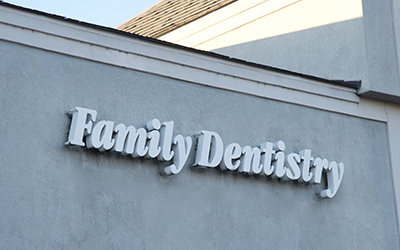Image Credit:
File ID 61069886 | © Puhhha | Dreamstime.com

Selling a dental practice for sale can be a complex transaction, especially when it comes to understanding the tax consequences. Whether you’re preparing for a dental sale or considering a dental practice for sale by owner, it’s critical to plan for the tax implications in order to maximize your after-tax earnings. In this article, we'll explore key tax considerations and strategies for minimizing your tax burden during the sale of your dental practice.
One of the biggest tax implications of selling a dental practice is capital gains tax. Capital gains are taxes on the profit made from the sale of your practice. If you’ve owned the practice for more than a year, it is typically taxed as a long-term capital gain, which can offer lower rates compared to ordinary income taxes.
For example, the sale price of a dental practice for sale is often divided into different asset categories, such as:
The way the sale price is allocated between these asset categories can significantly impact how much tax you’ll owe.
Another important tax implication to consider is depreciation recapture. Over the years, you likely depreciated certain assets, such as equipment or real estate, to reduce your taxable income. When you sell your practice, the IRS will “recapture” that depreciation by taxing a portion of the sale at a higher rate. Depreciation recapture typically applies to equipment and real estate, and it is taxed at ordinary income tax rates.
How the total dental sale price is allocated across different asset categories can affect your tax liability. Both the buyer and seller must agree on the allocation, as it impacts the tax benefits for each party. Common categories include:
By negotiating favorable allocations during the sale, you can optimize your tax outcomes. It’s essential to work with a financial advisor or tax professional to ensure the allocation maximizes your after-tax earnings.
Fortunately, there are several tax strategies that can help you minimize the tax burden of selling your dental practice. Here are some options to consider:
It’s also important to consider state and local tax implications, as these vary depending on where your practice is located. Some states have no capital gains tax, while others impose significant taxes on business sales. If you're selling a dental practice for sale by owner, be sure to account for any additional state-specific taxes and consult with local experts to ensure full compliance.
Selling your dental practice is a significant milestone that requires careful planning. While the tax implications may seem daunting, the right tax strategies can help you maximize the value of your dental sale. At CTC Associates, we specialize in guiding dentists through the sales process, including some tax and financial considerations. CTC Associates does not offer CPA or tax advice but may refer you to a specialist if you don’t already have one. Whether you're a seller or a buyer, our team of dental brokers is here to help you achieve your goals
Whether you're a seasoned dental professional planning your next big move or just beginning to explore the possibilities of buying or selling a dental practice, you've come to the right place. Our blog is designed to provide valuable insights, expert advice, and the latest industry trends to help you navigate the complexities of dental practice transitions. With decades of experience serving Colorado, Utah, New Mexico, Idaho, Wyoming, Washington, Alaska, and Hawaii, we are your trusted partners in building successful dental careers. Explore our articles and discover how we can support your journey toward achieving your professional goals.













